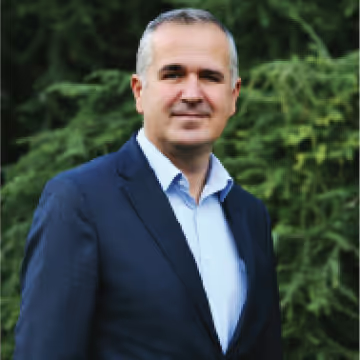Citizenship by Exception: Your Path to Citizenship
Did you know that several countries can fast‑track national status for a handful of outstanding people, sometimes without any public application process?
This route is a discretionary tool used by presidents, prime ministers or parliaments to recognise exceptional services in science, business, culture, sport, public service or philanthropy. It can waive residence rules and speed up outcomes in select countries such as Austria, Malta, Spain and others in Central and Eastern Europe.
For UK‑based high‑net‑worth families who value speed, certainty and reputational fit, this option offers a distinct path compared with standard naturalisation and with citizenship investment programmes.
Advantages include quicker decisions, possible family inclusion and, in EU cases, single‑market mobility. Trade‑offs include publicity risk, integration expectations and the unpredictability of ministerial discretion.
Marlow Bray provides objective feasibility screening, dossier strategy and discreet government engagement to help assess where an applicant’s achievements best align with national interest and the government’s merit criteria.
Key Takeaways
- Discretionary naturalisation recognises exceptional achievements without a formal public application.
- It differs from investment schemes and standard routes through residence waivers and ministerial discretion.
- Notable frameworks include Austria Section 10(6), Malta’s 2025 reform and Spain’s Royal Decree route.
- Non‑European options of interest include UAE nomination and the US EB‑1A route towards a green card.
- Marlow Bray offers discreet assessment, dossier building and direct engagement with government authorities.
What Citizenship by Exception is and why it matters in the present
Governments sometimes award national status as a strategic tool to attract talent and endorse high‑impact achievement. This route rewards exceptional merit rather than routine residence, fees or standard tests.
How it differs: Standard naturalisation follows time, language and integration requirements. A rules‑based citizenship investment route offers predictable costs and timelines. The exception route relies on political priorities, endorsements and a convincing case file instead of fixed steps.
Who typically qualifies
Mostly globally recognised scientists, founders and job‑creating investors, cultural leaders, elite athletes, senior public servants and major philanthropists qualify. These individuals show measurable outcomes — patents, jobs, research, cultural impact or charitable programmes.
- Qualification hinges on alignment with national interest — what a country values at a given moment.
- There is usually no public process; ministerial or parliamentary support matters.
- Ongoing value matters as much as past achievements.
Marlow Bray advises UK high‑net‑worth families on whether to pursue exceptional merit, a citizenship investment route, or standard naturalisation, balancing speed, certainty and long‑term security.
How governments grant citizenship in the national interest
Governments sometimes fast‑track naturalisation to secure skills, investment or cultural influence deemed vital to the state. Approval powers rest with different offices across countries, and that affects process and timing.
Who signs the order
Decisions can come from heads of state (Poland), cabinets (Serbia), ministers (Malta) or parliaments (Latvia). Each authority applies its own tests for merit and public benefit.
Residence waivers and fast tracks
National interest grounds allow authorities to waive usual requirements such as residence or language. For example, Austria (Section 10(6)) and Bulgaria (Article 16) may waive residence entirely, while France can reduce residency to two years for exceptional services.
- Expect due diligence: police clearances, background checks and verified endorsements.
- Prepare for merit presentations, translations and legalisation of documents.
- Timeframes: eligibility review, file build, then a lengthy government review phase.
Note: policy priorities shift with cabinets, so past success is not a guarantee. Marlow Bray provides discreet legal coordination and government engagement, monitoring ministerial reviews, committee steps and timelines so clients have clear expectations.
Product roundup: European countries offering exceptional or honorary citizenship
Several European states maintain discretionary routes to reward outstanding contributions in science, business, culture, sport and public life. These pathways vary in scope: some waive residence or language rules, others limit grants to the individual applicant.
Austria (Section 10(6)) often waives residence and language requirements for extraordinary achievement, with federal approval and possible dual nationality in rare cases.
Malta introduced a modernised 2025 merit framework. A special evaluation board assesses contributions to Malta or humanity and ministers retain final discretion; family inclusion may be considered.
Spain uses the Carta de Naturaleza, granted by Royal Decree in truly exceptional cases. These awards are typically individual and do not include family members.
Serbia: government decision can waive residence and prior nationality; spouses and minors may be added.
Bulgaria (Article 16): grants for special merit across science, business, culture or sport; child inclusion varies by age and status.
Croatia (Article 12): ministries confirm national interest, permit waivers and may allow family eligibility with minimal lawful residence.
Latvia: parliamentary assessment on a case‑by‑case basis; family inclusion is not standardised.
Slovenia: extraordinary naturalisation needs one year of recent residence and clear national interest justification.
France: reduced residence (often two years) for exceptional services, but language and integration requirements remain.
Europe at a glance: many other states — including Germany, Ireland, Italy, Poland, Portugal, Belgium, Czechia, Hungary, Sweden, Switzerland, the Netherlands, Norway, Denmark, Romania, Slovakia and Lithuania — may also consider national interest cases. Marlow Bray matches client profiles to these options, advising on feasibility, family inclusion and reputational fit.
Beyond Europe: standout discretionary pathways
Several non‑European governments now offer nomination schemes for standout achievers in business, science and the arts.
United Arab Emirates — nomination routes
The UAE’s 2021 reform created an invitation system for investors, doctors, scientists, inventors, intellectuals and creatives.
Approval is issued through Rulers’ Courts, Executive Councils or Cabinet decisions. Nominations focus on international stature and clear local value creation.
Family inclusion is possible: spouses and children may be added, which matters for relocation and education planning.
Successful nominees must take an oath and meet compliance obligations tied to national priorities and local laws.
United States — EB‑1A extraordinary ability
The EB‑1A visa offers a merit‑based route where one major award or meeting three of ten objective criteria can secure a Green Card.
Evidence includes publications, judging activities, original contributions, media coverage and commercial success. After five years of permanent residence, applicants may apply for citizenship.
Spouses and unmarried children under 21 qualify for derivative Green Cards, easing family transitions.
- Processing logic: the UAE route is political and administrative; EB‑1A is adjudicative and evidence‑led.
- Best fit: UK founders, scientists, medics and creatives seeking Gulf or US expansion.
Our role: Marlow Bray packages evidence, aligns career narratives, and coordinates with US counsel and UAE partners to streamline filings.
Eligibility signals that strengthen an exceptional case
A strong submission aligns past achievements with future national value. Decision panels expect clear evidence that an applicant’s work benefits the state in areas such as science, business, culture and sport.
High‑value indicators include globally recognised awards, peer‑reviewed publications, patents and commercialised inventions that show measurable impact.
Economic and operational impact
Proven investment, documented job creation, export growth and cluster building demonstrate economic value. Letters, audited figures and third‑party verification matter.
Public profile and cultural capital
Media coverage, institutional endorsements and visible leadership in major festivals or national teams create national visibility. These links help decision‑makers see ongoing benefit.
- Globally recognised prizes, citations and IP records
- Capital deployed, jobs created and export evidence
- Festival curation, museum exhibitions or elite sports records
- Verified philanthropic programmes with governance and measurable outcomes
Why a forward plan matters: letters of intent, MOUs and pipeline projects show sustained commitment and help qualify citizenship under national interest tests.
Marlow Bray benchmarks client profiles against target countries, stress‑tests track records and builds tailored narratives and evidence matrices to match each authority’s requirements.
Documents and evidence most applicants should prepare
A compact, well‑indexed packet helps officials assess national interest quickly. Presenting clear proof reduces questions and speeds review. Marlow Bray manages end‑to‑end dossier development to ensure each file is persuasive and compliant.
Identity, civil status, residence and police clearances
Core identity papers include passports, birth, marriage or divorce certificates and proof of residence. Where records differ, affidavits or certified re‑issues explain discrepancies.
Police clearances are needed from countries of nationality and recent residence. Many authorities accept certificates with a specific validity window; Marlow Bray tracks expiry dates and arranges timely renewals.
Proof of merit: portfolios, letters of endorsement, media, financials
Evidence of achievements should be concrete: awards, patents, publications, grant letters, festival catalogues or sports federation confirmation. Commercial records such as audited accounts, employment figures and export data demonstrate economic impact.
Third‑party endorsements from universities, ministries, industry bodies or national teams add credibility. Independent verification and media coverage strengthen the case.
Translations & legalisations: notarised translations and apostilles often apply; standards vary by country and chain‑of‑custody matters for sensitive files.
Financial transparency: tax compliance letters, bank statements and source‑of‑funds documentation are essential for payments or investment elements.
Master index: Marlow Bray prepares an executive brief, master index and country‑specific annexes so officials can review key points at a glance.
Typical process and timelines for discretionary naturalisation
A predictable sequence — screening, dossier build, submission, review — reduces uncertainty for high‑profile applicants. Marlow Bray stages work to match decision windows and legal requirements in the target country.
Initial eligibility review
Stage one is a feasibility check that usually takes 1–2 months. We map an individual’s record against national interest tests and threshold requirements.
Compiling and filing evidence
Document collation and certified translations commonly take around two months. Files include identity papers, endorsements and verified impact evidence with apostilles where needed.
Government review and final decision
Official review often exceeds six months. Governments run security checks, media vetting and verification of awards, then may request interviews or committee presentations.
Possible outcomes include approval, a deferral seeking further evidence, or refusal. Some cases allow reconsideration or fresh submission under revised criteria.
Marlow Bray’s role is active: we handle stakeholder mapping, submit a precise memorandum, coordinate verifications and prepare clients for interviews. We also build contingency plans for delays caused by elections or legal changes to keep the process moving.
Conclusion
A well‑structured proposal that demonstrates future national value often makes the difference in discretionary cases. This article mapped the landscape of merit routes, showing how merit and investment paths differ and where a clear path may exist.
Assess whether individuals made enduring, demonstrable impact that aligns with a specific country’s interest and government priorities. Consider the strongest European and non‑European options — Austria, Malta, Spain, Serbia, the UAE and the US — and note differences in family inclusion, residence waivers and language rules.
Grants of status are discretionary: a tightly composed file, credible endorsements and a forward‑facing contributions country narrative in science, culture or business materially improve outcomes.
For UK families, Marlow Bray stands ready to assess eligibility, structure a persuasive case and execute discreetly — including feasibility for serbian citizenship — to protect long‑term security and mobility.
FAQ
What is citizenship granted on merit and why does it matter today?
This route allows a government to grant nationality to people whose achievements, skills or investment clearly benefit the state. It matters because it helps countries attract talent, boost the economy and reward exceptional public service or cultural impact. For applicants it can offer faster access to rights and travel compared with standard naturalisation.
How does merit‑based naturalisation differ from standard naturalisation and investment programmes?
Merit routes rest on recognised contributions — awards, patents, high‑level research, cultural works, major investments or public service — and rely on discretionary decisions. Standard naturalisation depends on residence, language and civics tests. Investment programmes trade capital or jobs for a defined route to nationality, with clearer timelines but different risk and reputational profiles.
Who typically qualifies for an exceptional grant under national interest rules?
Successful applicants often include scientists, entrepreneurs, cultural figures, elite athletes, prominent philanthropists and senior public servants. The common thread is clear, demonstrable value to the state: innovation, job creation, international reputation or strategic investment.
Which authorities decide on discretionary grants in different countries?
Decisions are usually made by presidents, prime ministers, ministries of interior, citizenship committees or relevant cabinets. Some countries require parliamentary review. The precise decision‑maker and process vary by jurisdiction, so legal advice and targeted submissions are essential.
Can continuous residence requirements be waived or fast‑tracked?
Yes. Many states allow exemptions from standard residency rules when an applicant offers exceptional services or investment. Fast‑track procedures also exist for high‑impact cases, but these are discretionary and rely on strong evidence and supported nominations.
Which European countries offer exceptional or honorary grants and under what legal bases?
Several states maintain special routes: Austria under Section 10(6) for exceptional services; Malta via ministerial discretion in its merit framework; Spain through a Carta de Naturaleza by Royal Decree; Serbia via government decision for national interest; Bulgaria under Article 16 for special merit; Croatia via Article 12 for national interest; Latvia with parliamentary assessment; Slovenia for extraordinary naturalisation; and France for exceptional services with reduced residence. Other EU states like Germany, Ireland, Italy, Poland, Portugal, Belgium, Czechia, Hungary, Sweden, Switzerland, Netherlands, Norway, Denmark, Romania, Slovakia and Lithuania may also grant on merit in specific cases.
Are there notable discretionary pathways outside Europe?
Yes. The United Arab Emirates has nomination schemes for investors, scientists, doctors and creatives. The United States offers merit pathways such as the EB‑1A for those with extraordinary ability, which can lead to permanent residence and, over time, citizenship through naturalisation.
What types of evidence strengthen an exceptional case?
Strong signals include international awards, patents, peer‑reviewed publications, press coverage, large investments, demonstrable job creation, letters of endorsement from public figures and ongoing projects aligned with national priorities. A clear plan showing sustained benefit helps decision‑makers assess long‑term value.
What documents should applicants prepare?
Prepare identity documents, civil status records, proof of residence where relevant, police clearances and certified translations. For merit: portfolios, contracts, grant agreements, financial statements, media clippings and letters of recommendation from recognised institutions or government partners.
What are the usual stages and timelines for discretionary naturalisation?
Typical steps are initial eligibility review, dossier compilation, submission with legalisation and translations, government checks, possible interviews or presentations, and a final decision. Timelines vary widely — from several months for well‑supported fast‑track cases to more than a year for complex files.
What benefits and trade‑offs should applicants consider?
Benefits include quicker access to rights, broader mobility, family inclusion and, where applicable, EU freedom of movement. Trade‑offs are unpredictability, potential media attention, integration obligations and the absence of a guaranteed outcome. Reputation and compliance are critical.
When is an investment‑led route a better fit than an exceptional merit route?
Investment routes suit applicants seeking clear, contractual timelines and those willing to meet economic thresholds. Merit routes favour individuals whose unique talents or achievements outweigh residency or capital criteria and who can demonstrate ongoing national benefit.
What makes a strong case for high‑net‑worth UK‑based clients seeking a discretionary grant?
A strategic country selection that aligns the client’s profile with local priorities, discreet legal coordination, a polished dossier of endorsements and evidence, and proactive government engagement. Specialist advisers with experience across Austria, Malta, Spain, Serbia, Bulgaria, Croatia, Latvia, Slovenia, France, the UAE and the USA add value.
How should applicants approach publicity and privacy risks?
Anticipate possible media interest and prepare a clear communications strategy. Limit unnecessary disclosures in public filings, use trusted legal counsel for sensitive submissions and, where needed, request confidentiality protections in line with local law.
Can family members be included in an exceptional grant?
Many jurisdictions allow spouse and dependent children to be included, but rules differ. Some require family members to meet minimal residence or documentation standards. Confirm current practice with local authorities or legal advisers before applying.























